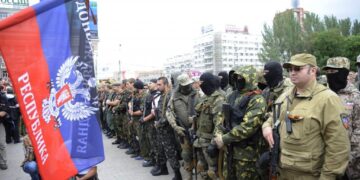Urgent Appeal to End Arrests Targeting Activists’ Families in Hong Kong
In a striking demonstration of solidarity, 87 non-governmental organizations (NGOs) have united to demand that Hong Kong authorities immediately stop detaining relatives of political activists. This collective outcry emerges amid an intensifying campaign by the government to suppress dissent through indirect intimidation tactics. By targeting family members, officials are not only violating individual rights but also inflicting profound emotional and psychological harm on entire households striving for justice and freedom of speech within a rapidly evolving political environment. As global observers monitor these developments closely, this issue highlights the persistent threats facing civil liberties in Hong Kong today.
Why Arresting Families Constitutes a Human Rights Crisis
The coalition’s statement underscores several critical concerns regarding the practice of arresting family members as leverage against activists:
- Violation of Fundamental Rights: Detaining relatives as a form of coercion undermines legal protections guaranteed under international human rights law.
- Psychological Trauma and Social Disruption: Innocent family members endure fear, anxiety, and long-lasting mental health consequences due to arbitrary arrests.
- Deterioration of Hong Kong’s Global Standing: Persistent punitive actions risk damaging the city’s reputation as an open society committed to rule of law and democratic values.
This approach not only threatens individual freedoms but also erodes trust within communities, fostering an atmosphere where fear stifles public discourse and civic engagement.
Escalating Repression Against Dissenters and Their Loved Ones
The recent surge in arrests targeting families reflects a broader pattern aimed at quelling opposition voices by extending pressure beyond activists themselves. These measures include arbitrary detentions without transparent legal procedures, harassment campaigns designed to intimidate households, and denial of access to adequate legal counsel—practices that contravene principles upheld by democratic societies worldwide.
| Issue | Consequences for Families |
|---|---|
| Arbitrary Detentions | Create pervasive insecurity among relatives living with constant threat. |
| Tactical Intimidation | Cause disruption in daily life routines leading to trauma across generations. |
| Lack of Legal Support | Puts detainees at risk for unjust treatment or wrongful convictions due to inadequate defense resources. |
Advocating Transparency, Accountability & Reform Within Law Enforcement Agencies
The NGO alliance stresses that meaningful change requires systemic reforms focused on transparency and accountability within policing bodies responsible for these actions. They call upon the government to align its practices with internationally recognized human rights frameworks that protect civil liberties unequivocally. The chilling effect caused by punishing families extends far beyond immediate victims—it undermines free expression essential for any vibrant democracy or autonomous society like Hong Kong’s historically aspired model.
The following recommendations have been proposed as vital steps toward restoring trust between citizens and authorities:
- Create Independent Oversight Committees: Establish impartial entities empowered to review police conduct regularly ensuring adherence to lawful standards without bias or interference.
- Mandate Comprehensive Human Rights Training: Implement ongoing education programs for all security personnel emphasizing respect for fundamental freedoms while performing duties responsibly.
- Create Transparent Reporting Systems: Develop accessible platforms where law enforcement activities—including arrests—are documented publicly with clear explanations about their legality and necessity.
- Suspend Punitive Actions Against Relatives Immediately: Halt all current policies involving detention or harassment based solely on familial association with activists until fair judicial processes are guaranteed universally.
Conclusion: Safeguarding Freedom Amid Rising Challenges in Hong Kong
The unified appeal from 87 NGOs calling on Hong Kong officials to end the practice of arresting activists’ family members signals deepening concerns over shrinking civil liberties within this semi-autonomous region. Such punitive strategies threaten not only those directly involved but also cast a shadow over freedom of expression more broadly—a cornerstone principle once emblematic of Hong Kong’s unique status under “one country, two systems.” With international attention intensifying amid ongoing political tensions across Asia-Pacific regions, how authorities respond will significantly influence both local morale and global perceptions regarding human rights commitments moving forward.
This situation remains dynamic; continued vigilance from advocacy groups worldwide is crucial as they push for reforms ensuring justice prevails without collateral damage inflicted upon innocent families caught in political crossfire.











